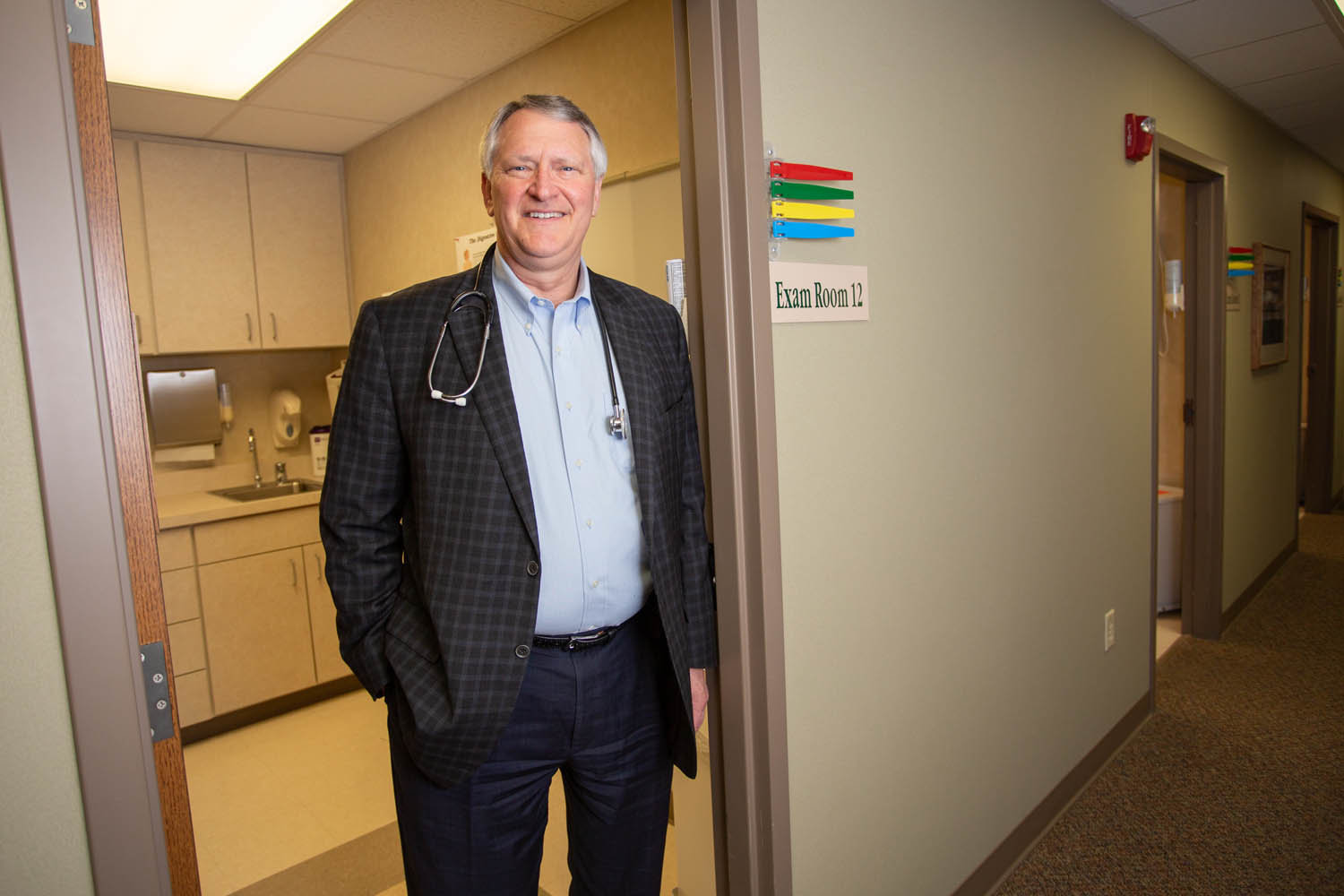YOUR BUSINESS AUTHORITY
Springfield, MO
YOUR BUSINESS AUTHORITY
Springfield, MO

You were recently named president-elect of the World Medical Association. As a family doctor for 36 years based in rural Mountain Grove, what are the skills you bring?
Family physicians bring an interesting perspective to medical conversations. We have a broad clinical base and a similarly broad administrative base. Rural medicine has unique challenges in terms of access, both in numbers of providers as well as breadth of services. Some of those same challenges exist in many countries around the world. There are logistical challenges. There are access challenges. There are often economic challenges. We think about many of the other countries of the world having national health systems – that does not always guarantee access. It does not always guarantee timely care. Many people do have to travel because there are often fewer high-level specialty services available; some of the same challenges that we see here in the rural United States.
We’re headed into a presidential election year, and the discussion of how to fix the U.S. health care system dominates the conversation among Democratic hopefuls. Do you agree with the premise that our system is broken? If so, how would you fix it?
The U.S. health system is an interesting mix of the best and some of the challenges. We have, without question, the best high level of critical care and acute care in the world. And yet some of our other health indicators are not so good. Our lifespan, our infant mortality and our maternal mortality numbers are not what they need to be. Part of the issue around chronic care do, in fact, have to do with access and affordability. The Affordable Care Act reduced the number of people in this country who have no insurance by about half, down to something around 9%. We’ve covered 20 million more people, but even those with insurance still have affordability issues. I have patients in my office in Mountain Grove who literally can’t afford life-saving medications. I have people who quit taking their insulin or only take half as much as I have prescribed because they can’t afford the monthly copay. Affordability is one of our biggest challenges and that is the avenue toward better health.
Do you support the petition to expand Medicaid statewide?
Almost all health care providers support appropriate expansion of Medicaid. That is probably the clearest line of sight and, quite honestly, the least expensive line of sight to cover some of the most vulnerable populations in southwest Missouri.
The number of deaths from opioids in Missouri has risen 154% in the past decade, according to the National Institutes of Health. But I imagine opioids are a necessary part of care. How do you balance that?
Some people overdose from prescribed opioids, but there are many overdoses that are opioids that are diverted. I prescribed for one person and those medications end up in somebody else’s hands. Then there are black market or illegal opioids, and those account for many of the deaths. The good news is over the last five years, opioid prescribing by physicians has dropped by 25%. Almost all physicians have had some amount of opioid education and how to manage pain better and think of other modalities first. We are still limited a little bit by other ways to treat pain. Sometimes, physical therapy or massage therapy or psychotherapy are not covered as well by some insurances. Also, there’s significantly more prescribing of Naloxone, the antidote for opioid overdose. That will save lives.
What countries are doing health care right?
The single most impressive thing I have experienced is how similar the issues are that both doctors and patients face around the world. Each country has found a few things that they do really well and other areas where they need improvement. Financing of health care is a universal problem. European doctors actually are unionized in many countries and actually go on strike. In the United States, there are almost no physicians that are unionized, and it’s sort of considered almost unethical to strike. But the fact that physicians would do that shows you how much stress those health systems are under. Interesting lecture I heard about a year ago ... some people say, “Well, we need to have a health care system like Sweden.” The lecturers’ answer was, “We do. It’s called Minnesota.” When you look at the demographics of Minnesota, the type of illnesses that are there, how much do they spend on health care and you compare it to Sweden, it’s remarkably similar. But what works in Sweden, and what might work in Minnesota, isn’t what’s going to work in Alabama. The United States health system is unbelievably complex. We can adapt where health care isn’t what it ought to be.
Dr. David Barbe can be reached at david.barbe@mercy.net.
A franchise store of a Branson West-based quilting business made its Queen City debut; Grateful Vase launched in Lebanon; and Branson entertainment venue The Social Birdy had its grand opening.
$2M in tax credits awarded to SWMO nonprofits
Baldwin, Lathan to chair United Way campaign
Produce recall impacts food sold at Walmart, Aldi and Kroger
Mixed-used development proposed in KC area
Tax deduction program for farmers set to launch
Report: Panera explores sale of Caribou Coffee, Einstein Bros Bagels